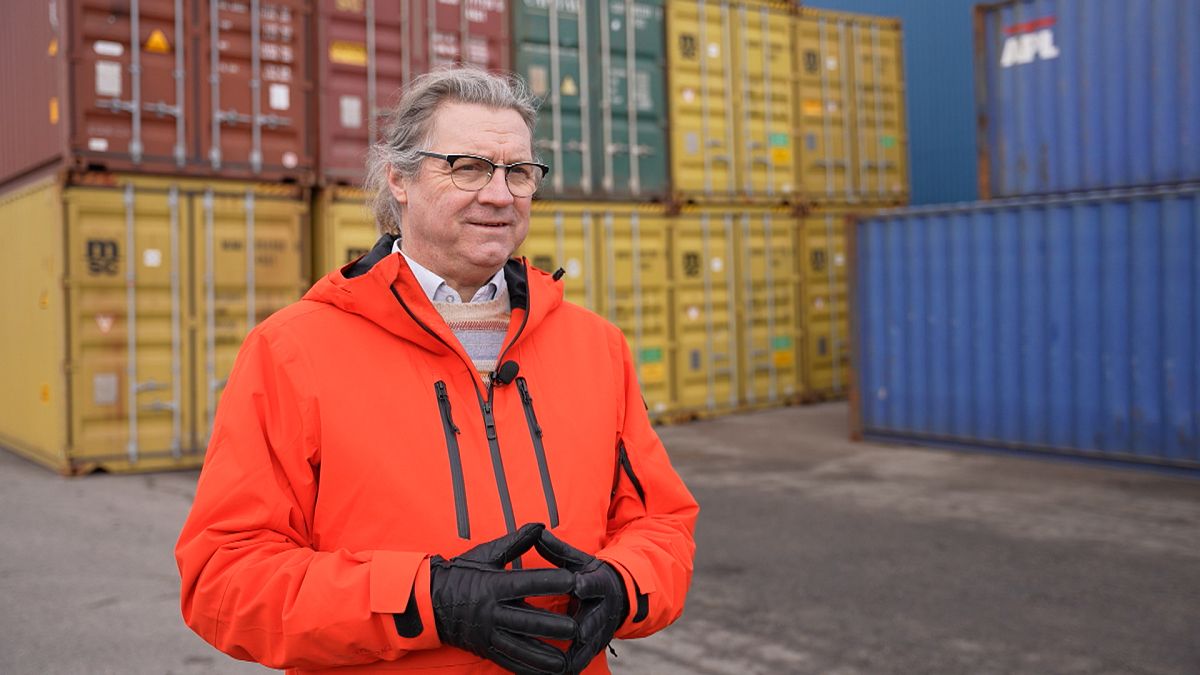Ulf Siwe, the head of the European 'EfficientFlow' project, explains why the Port of Gävle's work optimisation packages should be replicated at harbours worldwide.
The ports of Gävle in Sweden and Rauma in Finland, two major logistics hubs where railways, waterways and roads meet, adopted a pioneering system designed to slash emissions and streamline docking and departures in 2018.
The 'EfficientFlow' project has revolutionised the traditional first-come, first-served system (FCFS) at industrial ports to give stakeholders greater foresight when planning their arrival and unloading times.
Thanks to shared real-time voyage plans, port calls are better synchronised with adjustable arrival slots.
Ulf Siwe, the director of this innovative, three-year project, shared his insights with Euronews: "Container shipping is just 10 per cent of the world's shipping. Bulk is like 60 or 70 per cent and actually, has greater potential to save emissions.
"Container shipping already works with slot time. They have plans - they're really bad at keeping the plans, but they have plans, they need to be better at replanning.
"That's why information sharing is really good for rescheduling but bulk shipping has a different model.
"They don't have slot times. They have a model where they say 'first come, first served'. They race towards the port and the ones that arrive after have to wait. So it's a hurry-up-and-wait business, which is not very good for the environment," he added.
Allowing ships to predetermine and update their arrival times creates more transparency so that harbourmasters can better manage port traffic, especially when large vessels are expected to share quays.
Arriving cargo ships are generally given the green light by a harbourmaster to enter a port when a berth at a terminal becomes available however, the Port of Gävle manages this process differently with the Port Activity App™.
"So what's unique in Gävle is, they are using this procedure for bulk shipping. Bulk shipping traditionally works on a first-come, first-served basis but breaking this could change the whole structure of the bulk shipping industry".
"Gävle is the first [port] in the whole world doing this," he concluded.


